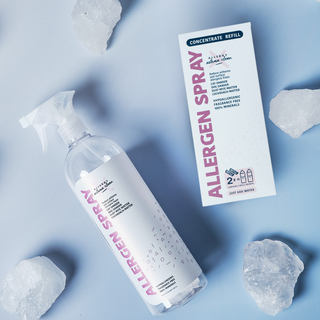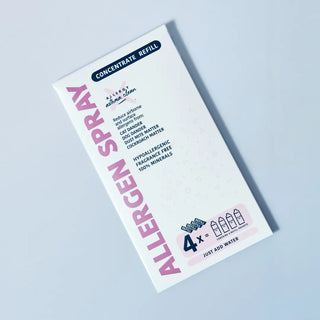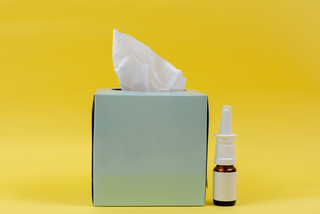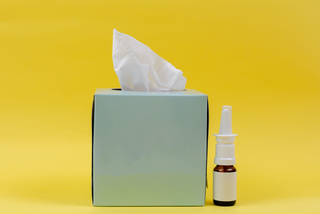When it comes to nasal sprays, there are plenty of options available on the market. However, not all nasal sprays are created equal. Some may provide temporary relief, while others offer long-lasting effects.
When it comes to nasal sprays, there are several types available on the market. Each type works in a slightly different way to alleviate allergy symptoms. Let's take a closer look at the different options:
- Steroid-Based Nasal Sprays: These nasal sprays contain corticosteroids, which are powerful anti-inflammatory agents. They help reduce inflammation in the nasal passages, providing long-lasting relief from allergy symptoms. Steroid-based nasal sprays are particularly effective for individuals with severe allergies.
- Antihistamine Nasal Sprays: These sprays work by blocking the effects of histamine, a chemical released by the body during an allergic reaction. By preventing histamine from binding to its receptors, antihistamine nasal sprays can relieve symptoms such as sneezing, itching, and runny nose.
- Decongestant Nasal Sprays: Decongestant nasal sprays work by shrinking the blood vessels in the nasal passages, reducing swelling and congestion. They provide quick relief from nasal congestion, but should only be used for short periods, as long-term use can lead to a rebound effect and worsen symptoms.
- Saline-Based Nasal Sprays: Saline nasal sprays contain a sterile solution of salt and water. They help moisturize the nasal passages, flush out allergens and irritants, and provide temporary relief from congestion. Saline sprays are safe and can be used frequently without the risk of side effects.
It's important to remember some nasal sprays may come with long or short term side effects.
Now that you're familiar with the different types of nasal sprays, how do you choose the best one for your allergies? Here are a few factors to consider:
- Symptom Severity: If your allergies are severe and persistent, a steroid-based nasal spray may be the best option. These sprays provide long-lasting relief and can effectively manage symptoms that other sprays may not be able to address.
- Allergen Triggers: Consider the specific allergens that trigger your symptoms. For example, if you're mainly allergic to pollen, an antihistamine nasal spray may be more appropriate. If you're dealing with nasal congestion, a decongestant spray can provide quick relief.
- Duration of Use: Some nasal sprays are intended for short-term use, while others can be used for longer periods. If you're looking for a nasal spray that you can use regularly without worrying about side effects, a saline-based spray may be the best choice.
- Consult with a Healthcare Professional: If you're unsure which nasal spray is right for you, it's always a good idea to consult with a healthcare professional. They can assess your symptoms and medical history to recommend the most suitable option.
Using nasal sprays correctly is crucial to maximize their effectiveness. Here are some tips to help you use nasal sprays effectively:
- Read the Instructions: Each nasal spray may have specific instructions for use. Be sure to read the label and follow the instructions carefully.
- Prime the Spray: Before using a nasal spray for the first time, or if you haven't used it for a while, prime the pump by spraying it into the air a few times until a fine mist is produced.
- Positioning: Tilt your head slightly forward and insert the spray nozzle into one nostril. Point the nozzle towards the back of your head, away from the center of your nose.
- Spraying: Press down on the pump to release the spray while breathing in gently through your nose. Avoid sniffing or inhaling forcefully to prevent the spray from going down your throat.
- Repeat: If instructed to use the spray in both nostrils, repeat the process for the other nostril.
- Cleaning: After each use, clean the spray nozzle with a clean tissue to prevent blockages.
Remember to check the instructions for specific guidance on dosage and frequency of use for each nasal spray.
Like any medication, nasal sprays can have side effects. However, it's important to note that not everyone will experience side effects, and they are typically mild and temporary. Here are some common side effects and how to manage them:
- Nasal Irritation: Some people may experience temporary nasal irritation, including stinging, burning, or dryness. To manage this, try using a saline nasal spray before using other types of nasal sprays. If the irritation persists, consult with a healthcare professional.
- Nosebleeds: Nasal sprays can sometimes cause nosebleeds, especially if used for long periods or in high doses. To minimize the risk of nosebleeds, use the spray as directed and avoid excessive force when spraying. If nosebleeds persist or become severe, consult with a healthcare professional.
- Headache: Headaches are a rare side effect of nasal sprays, but they can occur. If you experience a persistent or severe headache after using a nasal spray, discontinue use and consult with a healthcare professional.
- Unpleasant Taste or Smell: Some nasal sprays may leave a temporary unpleasant taste or smell. This is usually harmless and will fade quickly. Rinsing your mouth with water after using the spray can help alleviate this sensation.
If you experience any other unexpected or severe side effects, stop using the nasal spray and seek medical attention.
If you prefer a more natural approach to managing your allergies, there are several alternatives to nasal sprays that you can explore. While these may not provide the same immediate relief as nasal sprays, they can help alleviate symptoms and reduce reliance on medication. Here are some natural alternatives to consider:
- Saline Rinse: Similar to saline nasal sprays, saline rinses can help flush out allergens and irritants from your nasal passages. You can use a neti pot or a saline rinse bottle to irrigate your nasal passages with a saline solution.
- Steam Inhalation: Inhaling steam can help moisturize your nasal passages and relieve congestion. You can do this by leaning over a bowl of hot water and breathing in the steam. Adding a few drops of eucalyptus or peppermint oil to the water can provide additional relief.
- Quercetin Supplements: Quercetin is a natural compound found in certain foods, such as onions, apples, and berries. It has anti-inflammatory properties and may help reduce allergy symptoms. Quercetin supplements can be found in health food stores and online.
Nasal sprays can be quite expensive, especially if you need to use them regularly. Here are some tips to help you find the best deals and save money:
- Compare Prices: Check prices at different pharmacies and online retailers to find the best deal. You may also find discounts or promotions available at certain times.
- Generic Options: Generic versions of nasal sprays often contain the same active ingredients as brand-name sprays but at a lower cost. Ask your healthcare professional or pharmacist if a generic option is available.
- Manufacturer Coupons: Some nasal spray manufacturers offer coupons or rebates that can help reduce the cost. Check the manufacturer's website or ask your pharmacist if there are any available.
- Bulk Buying: Consider purchasing nasal sprays in larger quantities to take advantage of bulk discounts. Just make sure the expiry dates are reasonable and you'll be able to use them before they expire.
- Insurance Coverage: Check if your health insurance covers the cost of nasal sprays. Some plans may provide partial or full coverage, which can significantly reduce your out-of-pocket expenses.
To help you make an informed decision, it's always helpful to hear from other users who have tried different nasal sprays. Here are some user reviews and recommendations for the top nasal sprays on the market:
- Flonase: Flonase is a popular steroid-based nasal spray that many users find highly effective for relieving allergy symptoms. Users report long-lasting relief from congestion, sneezing, and itching.
- Nasacort: Nasacort is another steroid-based nasal spray that receives positive reviews. Users praise its ability to provide relief from severe allergies and appreciate the non-drowsy formula.
- Rhinocort: Rhinocort is a steroid-based nasal spray that users find effective for both seasonal and year-round allergies. It is often recommended for individuals with sensitive noses due to its gentle formulation.
- Otrivin: Otrivin is a decongestant nasal spray that users find helpful for quick relief from nasal congestion. However, it is important to follow the instructions and avoid long-term use to prevent rebound congestion.
- Beekeeper's Naturals Nasal Spray: Nasal Spray a perfect option for those looking for a nasal spray with more natural ingredients backed by nature.
Remember that individual experiences may vary, and what works for one person may not work for another. It's always a good idea to consult with a healthcare professional before starting any new nasal spray.
By understanding the different types of nasal sprays, their ingredients, and how to use them effectively, you can find the best nasal spray for you.
Whether you need a steroid-based nasal spray for severe allergies or a saline-based spray for mild symptoms, there is an option out there. Consider your symptom severity, allergen triggers, and duration of use when choosing a nasal spray. Don't hesitate to consult with a healthcare professional for personalized recommendations.















